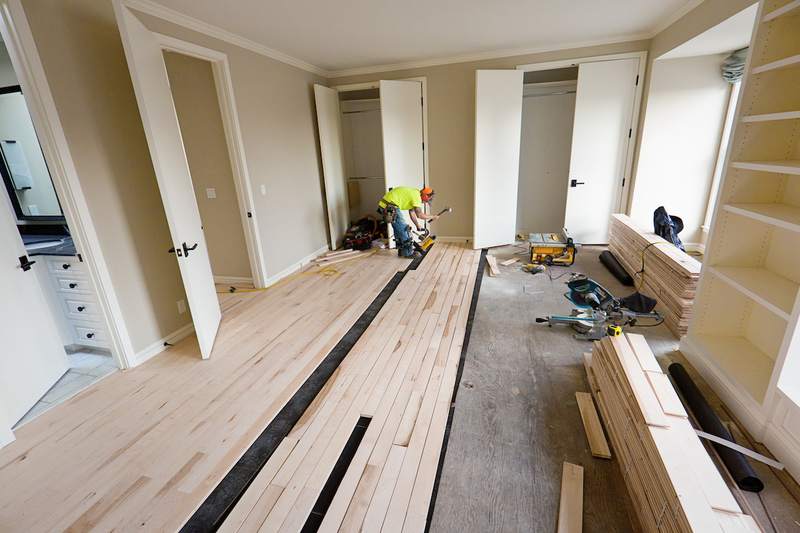
Mortgage points — aka discount points — are an upfront fee you pay in exchange for a lower interest rate on your loan. There are times when it makes sense to buy points, and times when it’s best to pass. Here are some of the pros and cons of buying mortgage points.
The Basics of Mortgage Points
Mortgage points are prepaid interest on your loan. In exchange for paying that interest upfront, your lender lowers the interest rate on your mortgage, which in turn reduces the monthly payment and the overall interest paid on the loan.
“Each point typically costs 1% of the total mortgage amount and can lower the interest rate by around 0.25%,” says Adie Kriegstein, a real estate agent and founder of the NYC Experience Team at Compass in New York.
Mortgage lenders are required to reduce your interest rate if you pay points, but the exact difference in your interest rate will vary by lender.
Benefits of Buying Mortgage Points
There are several benefits to paying points.
Reduce your interest rate
Paying points is the most direct way you can reduce your loan’s interest rate. Buyers often purchase points if their credit score isn’t so good or overall interest rates are high when they’re ready to buy. If you can afford points, it’s a quick and easy way to knock down your interest rate immediately.
Lower your monthly payments
One of the biggest considerations when taking out a mortgage is making sure you can afford your monthly payment. A lower interest rate reduces your monthly mortgage payment, which makes the loan more affordable and gives you more room in your budget for other expenses.
Overall loan savings
Reducing your interest rate also lowers the total amount of interest you pay over the life of your loan. This can help you free up money for other things — like savings, investments, education expenses, or fun stuff like vacations.
Tax deductions
As a form of prepaid interest, mortgage points may be deductible from your taxable income. To do so, you’ll need to itemize your deductions. If you deduct all the interest on your mortgage, then you can deduct the points you purchase. However, there are some limits.
Consult a qualified tax professional for advice.
Can afford to borrow more
Buying points could help you purchase a more expensive home. Reducing the interest rate means you can borrow more money without increasing your monthly mortgage payment. Paying points also reduces your debt-to-income ratio, which can help you qualify for a larger loan.
Suppose a 30-year fixed-rate mortgage for $400,000 with a 7% interest rate and a 20% down payment will come with a monthly payment of $2,483. If you purchase points and reduce your interest rate to 6.5%, your monthly payment would be $2,352. With that 6.5% interest rate, you could borrow $420,000, and your monthly payment would be $2,478 — which is still less than it would be with the higher interest rate of 7%.
Drawbacks of Buying Mortgage Points
Here are some of the drawbacks to consider about buying mortgage points.
Higher upfront costs
Buying mortgage points increases your closing costs. It can take a long time just to save up for a down payment, and closing costs run 2% to 5% of the total loan amount, even before buying points. Not everyone has an extra pile of cash laying around to buy points with.
You need to break even on your upfront costs
For points to be financially worthwhile, you need to be able to recoup the money you spent on them — known as your break-even point. If you refinance or sell the home before you break even, then buying points will lose you money.
Let’s say you apply for a 30-year fixed-rate mortgage for $500,000 at a 7% interest rate, and the monthly payment is $3,015. You realize that if you pay $5,000 for points, you can knock your interest rate down to 6.5% and get a monthly payment of $2,857. This means you’d save $158 per month, and it would take 32 months until you break even. But if you sell the home after 24 months, you would have paid $5,000 to save $3,792 — a loss of $1,208.
A larger down payment may be better
It may make more sense to increase your down payment than to buy points.
A larger down payment means you’re borrowing less money, which will reduce your monthly payment. It also may get you a better interest rate, since the lender is taking on less risk.
If you’re making a down payment of less than 20% on a conventional loan, then you’ll have to pay for private mortgage insurance. If putting more money down will get you over the 20% threshold, then you’ll also be able to avoid PMI.
However, paying points has a more direct effect on your interest rate than a larger down payment.
When It’s a Good Idea To Buy Points
Here are some cases where buying points may make sense for you:
- You want to reduce your monthly payment.
- Your credit score is low.
- Your down payment is small.
- You plan to keep the loan for a long time and won’t move or refinance before you’ve reached your break-even point.
“It makes sense to buy points if you plan to stay in the home for a long time, as the savings on interest can outweigh the upfront cost of buying the points,” Kriegstein says. “Additionally, if you have extra cash on hand and want to lower your monthly payments, buying points can be a good option.”
When It’s Not a Good Idea To Buy Points
Buying points isn’t financially beneficial when you don’t plan on living in the home long enough to break even.
“If you plan to sell the home or refinance in the near future, buying points may not be worth it as you won’t have enough time to recoup the upfront cost,” Kriegstein says.
Here are some cases where it may not make sense to buy points:
- You plan on moving in the next few years.
- You are making a down payment of less than 20% and have to pay for PMI.
- You can’t afford to spend more money upfront.
FAQ
Here are answers to some frequently asked questions about buying mortgage points.











